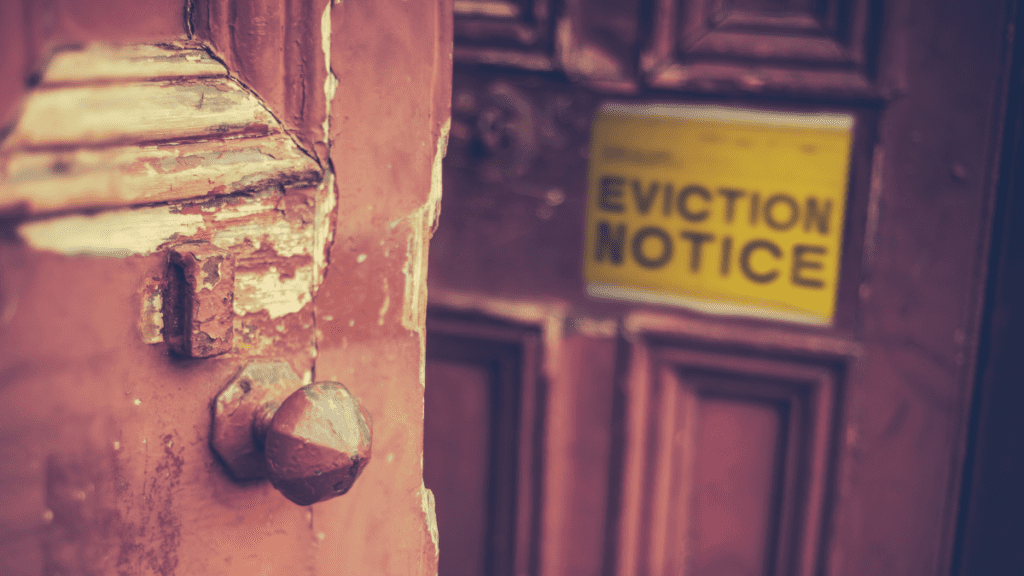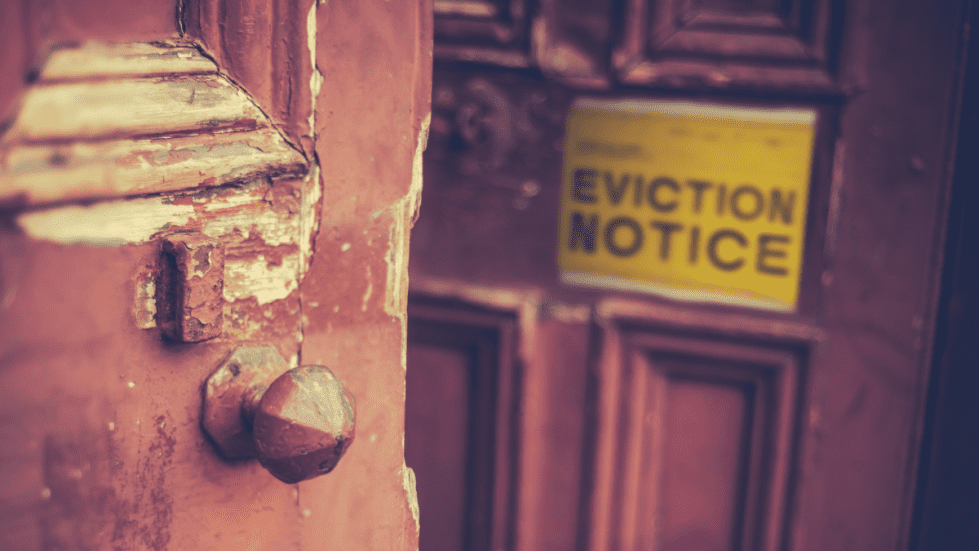

Senate Substitute 1 for Senate Bill 101 failed in House Appropriations Committee Thursday. (Getty Images)
A bill to guarantee tenants the right to legal counsel in eviction proceedings failed in the House Appropriations Committee Thursday.
Senate Substitute 1 for Senate Bill 101, which will not advance to the House floor, would have:
- Created a right to legal representation for renters facing eviction whose household income is lower than 200% of federal poverty guidelines;
- Placed coordination of the program within the Delaware Attorney General’s Office, which would contract with appropriate legal service organizations to provide representation in proceedings covered by the bill;
- Required landlords to provide notice of the right to representation at certain designated intervals of a tenancy and in eviction proceedings; and,
- Created an Eviction Diversion Program designed to help resolve payment or other issues once a landlord files for eviction.
Proponents said the bill would have created parity with landlords who are able to be represented in eviction proceedings by non-lawyer advocates, or Form 50 agents.
Under the bill, legal aid groups such as the Community Legal Aid Society would have been given funding to provide tenants with qualified tenant advocates.
Those advocates would not be lawyers, but would be well versed in eviction law and would be able to guide evictees through the process.
RELATED: Delaware’s affordable housing crisis affects middle class, too
The bill would have created a system wherein the state’s three legal aid groups could provide qualified tenant advocates to evictees free of charge, so long as the tenant falls within 200% of the poverty line.
Opponents, including the Delaware Apartment Association, asked committee members not to release the bill.
Landlords don’t want to evict their tenants and only evict tenants when they have no other choice, said Debra Burgos, the association’s president.
Eviction is a lengthy and expensive process, she said, and landlords incur additional expenses finding new tenants and rehabilitating properties between tenants, not to mention the lost income that occurs after tenants are evicted.
“The concern is that this bill does not do what they’re trying to accomplish by providing affordable housing and keeping people in their homes,” Burgos said.
“By paying for an attorney we’re not really putting the funding that we’re providing in the right places. Most cases that show up in the Justice of the Peace Courts are people that cannot pay their rent for whatever reason, and there really is no merit to that – there’s not much an attorney can do to maintain that person in their home with the current law.”
Instead, Burgos said, the state should be investing more in rental assistance, such as DEHAP, the Delaware Housing Assistance Program.
“The more that we’re adding on top of landlords in expenses means the higher rents go, which just causes this affordable housing crisis to become worse and that’s what we’re trying to avoid,” Burgos said.
Daniel Atkins, executive director of the Community Legal Aid Society, said all the bill would have done is level the playing field between landlords and tenants in eviction proceedings.
There is an asymmetry in the system, he said, wherein “85% of the time landlords were represented in [eviction] cases and fewer than 5% of the time, tenants were.”
Contrary to Burgos’ testimony, Atkins said landlord costs could “go down significantly” due to the bill.
“We are paying too much for the system,” he said. “We are subsidizing this eviction churn, and that churn is what we’re trying to break. Not in a way that breaks landlords – we need the landlords. This is a symbiotic relationship and we need landlords to provide housing. It is not in our interest to drive them out of business.”
Housing Alliance Delaware on Thursday morning released its 2022 Point in Time survey, which counts the number of homeless people at a given time in Delaware.
On one night in February 2022, 2,369 people were experiencing homelessness in Delaware – more than double the number of people counted as homeless in 2020 and the highest number to date.
According to the survey, the number of households with children experiencing homelessness nearly tripled since 2020, from 136 families in 2020 to 389 families in 2022.
One in three people experiencing homelessness on the night of February 2022 was a child under the age of 18.
RELATED: New court rule allows non-lawyers to represent tenants in eviction proceedings
“Just a level playing field is all we’re asking,” Atkins said. “It’s going to benefit everybody. Fairness does – in an adversarial system, fairness is going to lead to more justice.”
According to its fiscal note, the bill, which has already passed in the Senate and was voted out of the House Housing and Community Affairs Committee, would have cost the state $1,169,565 in its first year, $2,052,348 in its second year and $3,661,395 in its third year.
Much of that expense would have gone directly to legal aid agencies to support the cost of providing non-lawyer advocates.
Rep. Bill Carson, D-Smyrna, Rep. Kevin Hensley, R-Odessa, and Rep. Stephanie T. Bolden, D-Wilmington, voted against releasing the bill from the House Appropriations Committee.
Rep. Kim Williams, D-Newport, and Rep. David Bentz, D-Christiana, voted to release the bill.
Rep. Ruth Briggs King, R-Georgetown, was absent.


Charlie Megginson covers government and politics for Delaware LIVE News. Reach him at (302) 344-8293 or [email protected]. Follow him on Twitter @cmegginson4.
Share this Post


